The disclosure of former Democratic Progressive Party (DPP) spokesperson Hsu Chia-ching’s (徐佳青) recent allegation that former president Chen Shui-bian (陳水扁) took several billion New Taiwan dollars from construction magnates during his presidency sent shock waves across the party yesterday, engulfing the party’s chairperson and only presidential candidate, Tsai Ing-wen (蔡英文).
Hsu resigned as spokesperson yesterday morning after the Chinese-language Apple Daily revealed in yesterday’s edition a speech she reportedly delivered to members of the Taiwan Benevolent Association of Dallas, Texas, on Feb. 15, and her resignation was soon approved.
According to an excerpt from her speech recorded on a video available on the Internet, Hsu said she was told by a tycoon that dozens of magnates from the construction sector each offered between NT$30 million and NT$70 million (US$947,000 and US$2.2 million), amounting to several billion NT dollars, to Chen at a gathering when he was in office.
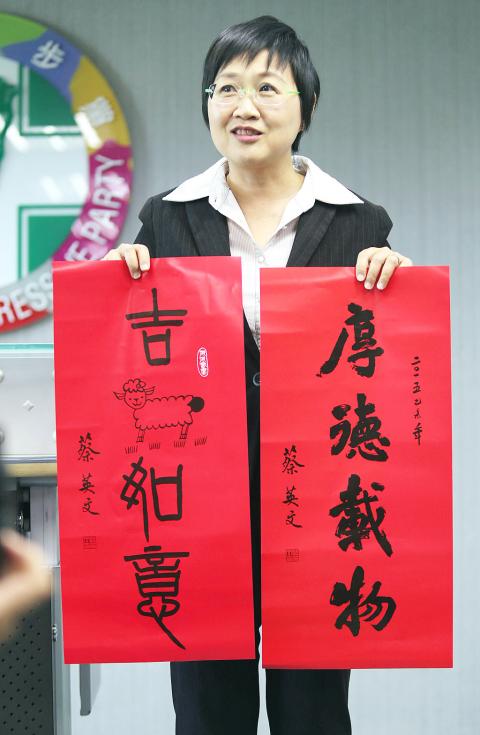
Photo: CNA
“Just because the contributions [Chen] has made [to Taiwan] should be recognized doesn’t mean that the mistakes [in connection with corruption] involving his family should be ignored,” Hsu said.
Hsu then questioned the legitimacy of the former president’s son, Chen Chih-chung (陳致中), seeking a seat in the legislature under the party’s banner.
Chen Chih-chung had a role in the corruption charges against Chen Shui-bian, Hsu said, adding that the DPP lost the legislative seat to the Chinese Nationalist Party (KMT) in the Ninth District of Kaohsiung in the 2012 election because Chen Chih-chung quitting the party to run had split the DPP vote.
Chen Chih-chung asked for re-entry to the party, which was recently approved, and is seeking to represent the party in the election.
“Have you [Chen Chih-chung] ever contributed to Taiwan in any way? No one dared to speak ill of him just because he is Chen Shui-bian’s son,” she said.
Tsai said that Hsu’s remarks about the former president were inappropriate.
“Hsu cited others without having verified if it’s true, and we think it’s not very appropriate,” Tsai told the media when attending a screening of the video last night. “Although she was in the US on vacation, I still think what she said was beyond her role as a spokesperson for the party, and therefore I have approved her resignation.”
Hsu’s remarks sparked mixed reactions among DPP members and netizens, with some saying that facing up to corruption involving Chen Shui-bian would be advantageous to Tsai and the party’s image, while others demanded that Hsu present evidence for her allegation and voiced concern over party strife.
DPP spokesperson Chen Yun-peng (鄭運鵬) told a press conference that party headquarters was not aware of Hsu’s speech beforehand and that what she said reflected only her personal views.
Hsu offered no further comments on the allegation yesterday.
In a statement, Hsu said she did not deliver the speech in her capacity as party spokesperson, adding that she offered to resign to avoid diverting public attention from policy issues.
Chen Chih-chung dismissed what Hsu said as “groundless.”
“I hope that whoever made slanderous allegations will provide evidence for public scrutiny, instead of making accusations based on hearsay,” he said.
Radio host Clara Chou (周玉蔻) said on Facebook that she learned from sources that Chen Shui-bian was so outraged at the allegations that he said he would ensure Tsai has a hard road to the presidential election if she does not apologize for Hsu’s remarks.
The ailing Chen Shui-bian was granted temporary medical parole in early January after serving six years of a 20-year sentence for corruption, during which he developed multiple complications, including severe depression, sleep apnea, non-typical Parkinson’s disease and mild cerebral atrophy.
In a Facebook post late yesterday, psychiatrist Chen Chiao-chicy (陳喬琪) was quoted by Janice Chen (陳昭姿), the head of the former president’s civilian medical team, as saying that Hsu’s allegation has driven Chen Shui-bian and his wife, Wu Shu-jen (吳淑珍), to the brink of collapse.
The Taipei District Prosecutors’ Office said the office would investigate the allegation if there was any evidence of irregularities.
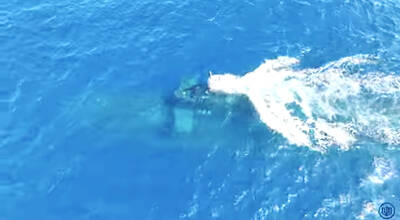
CSBC Corp, Taiwan (台灣國際造船) yesterday released the first video documenting the submerged sea trials of Taiwan’s indigenous defense submarine prototype, the Hai Kun (海鯤), or Narwhal, showing underwater navigation and the launch of countermeasures. The footage shows the vessel’s first dive, steering and control system tests, and the raising and lowering of the periscope and antenna masts. It offered a rare look at the progress in the submarine’s sea acceptance tests. The Hai Kun carried out its first shallow-water diving trial late last month and has since completed four submerged tests, CSBC said. The newly released video compiles images recorded from Jan. 29 to
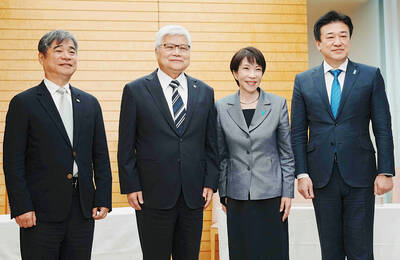
Taiwan Semiconductor Manufacturing Co (TSMC, 台積電) plans to make advanced 3-nanometer chips in Japan, stepping up its semiconductor manufacturing roadmap in the country in a triumph for Japanese Prime Minister Sanae Takaichi’s technology ambitions. TSMC is to adopt cutting-edge technology for its second wafer fab in Kumamoto, company chairman C.C. Wei (魏哲家) said yesterday. That is an upgrade from an original blueprint to produce 7-nanometer chips by late next year, people familiar with the matter said. TSMC began mass production at its first plant in Japan’s Kumamoto in late 2024. Its second fab, which is still under construction, was originally focused on
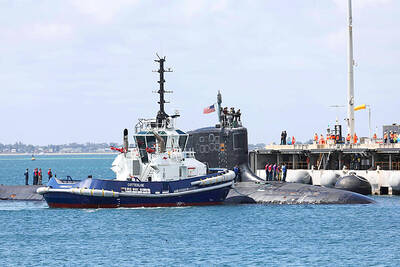
DETERRENCE EFFORTS: Washington and partners hope demonstrations of force would convince Beijing that military action against Taiwan would carry high costs The US is considering using HMAS Stirling in Western Australia as a forward base to strengthen its naval posture in a potential conflict with China, particularly over Taiwan, the Wall Street Journal reported on Saturday. As part of its Indo-Pacific strategy, Washington plans to deploy up to four nuclear-powered submarines at Stirling starting in 2027, providing a base near potential hot spots such as Taiwan and the South China Sea. The move also aims to enhance military integration with Pacific allies under the Australia-UK-US trilateral security partnership, the report said. Currently, US submarines operate from Guam, but the island could
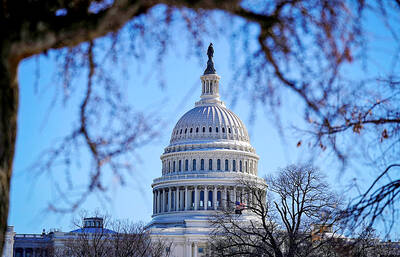
RESTRAINTS: Should China’s actions pose any threat to Taiwan’s security, economic or social systems, China would be excluded from major financial institutions, the bill says The US House of Representatives on Monday passed the PROTECT Taiwan Act, which states that Washington would exclude China from participating in major global financial organizations if its actions directly threaten Taiwan’s security. The bill, proposed by Republican Representative Frank Lucas, passed with 395 votes in favor and two against. It stipulates that if China’s actions pose any threat to Taiwan’s security, economic or social systems, the US would, “to the maximum extent practicable,” exclude Beijing from international financial institutions, including the G20, the Bank for International Settlements and the Financial Stability Board. The bill makes it clear that China must be prepared